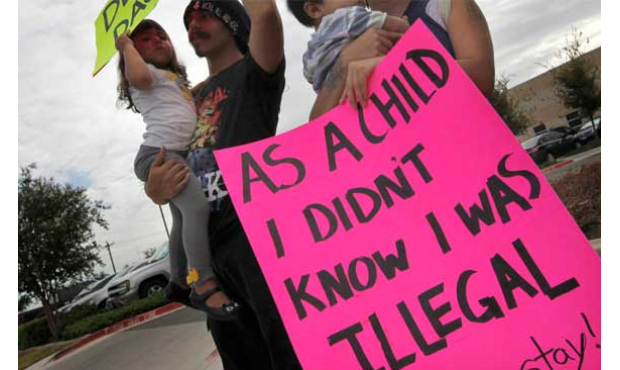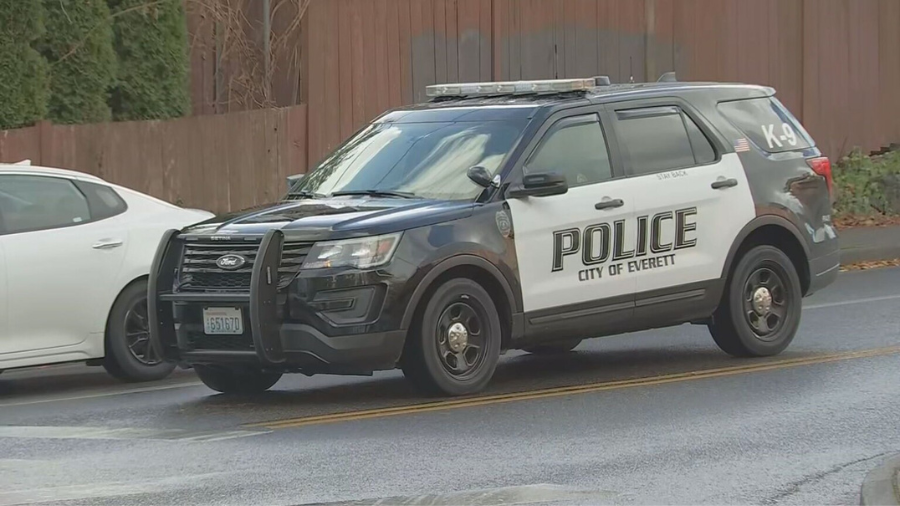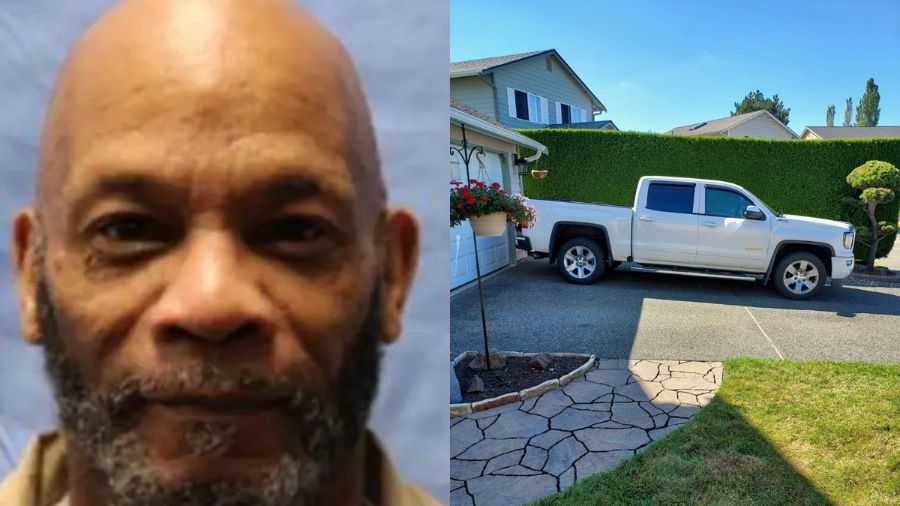Tacoma man’s journey in America under DACA
Sep 7, 2017, 5:42 AM | Updated: 9:16 am

A Sept. 2, 2017 protest in favor of Deferred Action for Childhood Arrivals (DACA), Tuesday, Sept. 5, 2017, in front of the Texas Attorney General's office in Pharr, Texas. (Nathan Lambrecht/The Monitor via AP)
(Nathan Lambrecht/The Monitor via AP)
When Eduardo was 6 years old, he was told he was leaving his Guadalajara home immediately.
“I do kind of remember the day that they said, ‘You are going to go,”’ he told Seattle’s Morning News on KIRO Radio. “I didn’t know where, I just packed a backpack full of toys.’ They said, ‘No, you can’t take your toys.’ And I left the backpack.”
RELATED: Washington state sues Trump administration over DACA
All Eduardo can recall from that time was meeting his grandmother in California. The rest is a blur. A year after arriving in California, his family moved to Washington where his father took any job he could to support his family.
His memories since then are filled with American culture, where he grew up as an undocumented immigrant. When the DACA program was implemented under President Obama, he took advantage of it. Through DACA, he was able to go to school and work. He even started telling his friends that he was an undocumented immigrant, brought into the country as a child — commonly referred to as a dreamer.
“For a long time, everybody just assumed that I was (a citizen),” he said. “They are very accepting (since I told them). They understand. They just ask a few questions.”
Eduardo’s life through DACA
Today, Eduardo is 24 years old and has a 6-year-old child of his own; the same age he was when he came to America without any toys. Under DACA he has been able to buy a home in Tacoma. And today, he is worried as the Trump administration threatens the program that has brought him into the light and allowed him to participate, out in the open, in American society.
He says he tries to stay positive, but is constantly hearing rhetoric that immigrants and people like him — dreamers — are criminals and thugs.
“When DACA came around, we were vetted,” he said. “There was a long application we had to go through. They asked for criminal records; all kinds of records, all the addresses where we lived since we were here. The people on DACA, the people being helped by DACA, they are not people who are here to cause harm or crimes. Because they know what’s at stake. I’m not going to go out and do something that could potentially end my DACA status.”
Eduardo argues that he understands when people argue that undocumented immigrants should go back to their birth countries and wait in line. But that’s a very limited picture of the reality.
“Especially when somebody has been here for so many years, kicking them out and telling them to go wait in line is not the best way when they have proven they can be part of the society here without causing problems or causing any crimes,” he said.
Despite all the current tension, Eduardo does not regret being taken to America when he was so young.
“I feel like (my parents) did that to better our future coming here,” he said. “I don’t know what my life would have been like if I was in Mexico. It could have been good. It could have been bad. But I really appreciate the fact that I was brought here. I appreciate that I’m here. I love this country.”













